Taiwan needs to build a brand image beyond COVID-19
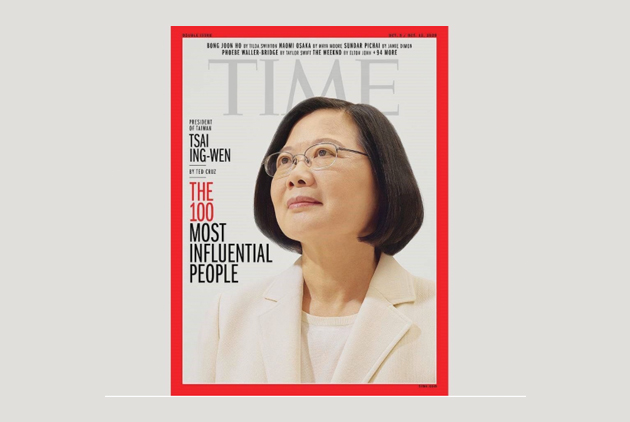
Source:Time Magazine
Taiwan needs global recognition, and the world needs more collaboration to tackle its COVID19 challenges, there is no question about it. However, building the world’s perception solely upon the #TaiwanCanHelp campaign might not be enough and realistically can not be maintained and scaled as a government initiative only. Instead, Taiwan’s private sector has to rebuild and newly create household brands that represent Taiwan.
Views
Taiwan needs to build a brand image beyond COVID-19
By Nicky Szmalaweb only
When I tell people I'm from Germany, they usually immediately mention Mercedes, Mueller (from Bayern Munich), Autobahn (driving without speed limit), Neuschwanstein, and Beer with Pork Knuckles.
While there are many more associations that I could name, it’s usually a mix of brands, soccer-playing celebrities, things you can do in Germany, famous sights, and our meat-heavy cuisine.
Of course, Germany is a large nation, but I could bring up examples from smaller countries where certain things have become positive associations with their people. Just think of LEGO from Denmark, IKEA from Sweden, and Van Gogh from Holland.
Closer to Taiwan, South Korea is home to Samsung, LG and Hyundai—all household names with a clear association with their country.
I would argue for most foreigners who have not lived in Asia and visited Taiwan, it would be difficult to name something beyond COVID-19 that they associate with Taiwan. This is a pity because Taiwan has so much to talk about. A unique and open democratic society paired with deep roots in Chinese culture, a delicious cuisine, stunning nature, and all the ingredients to build a global household brand like Google or Apple.
Wait, you might want to interject and say that Taiwan has Acer, Asus, Giant, OEM manufacturers like Foxconn that supply brands like Apple and leading semiconductor companies such as TSMC. That is all true and these are very successful multiple billion-dollar global businesses, but none of these companies are ranked on Forbes nor on BrandZ 2020 100 most valuable brands lists.
COVID-19 won’t stay on top of the news forever.
What put Taiwan on the map was the successful handling of the COVID-19 pandemic. For months, Taiwan has been featured in leading global news media covering how this small island country close to China has managed to keep the outbreak at bay without the need for lockdowns.
There are too many news reports to mention, but Tsai Ying-Wen’s recent appearance on the TIME magazine’s most influential people issue in 2020 is a tremendous achievement.
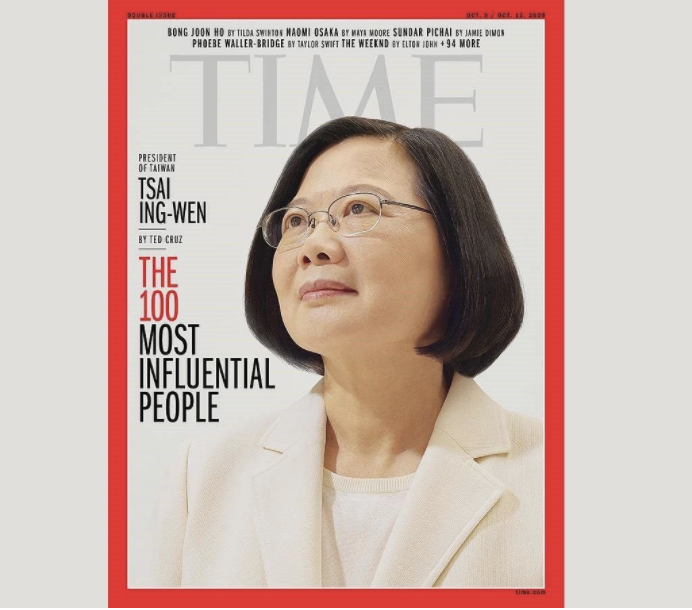
And it’s not only her who has received recognition from leading media sources. Taiwan’s Digital Minister Audrey Tang was featured in an in-depth article in the WIRED magazine describing how she hacked the pandemic through her tech-savviness and participation in Taiwan’s open source community.
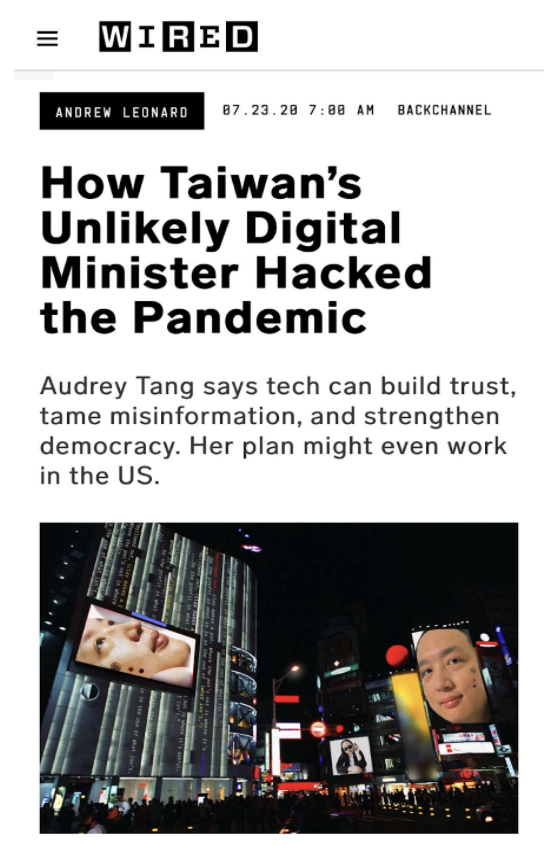
Taiwan is building on this momentum through its #TaiwanCanHelp campaign that goes beyond COVID-19 and includes now topics from the United Nations Global Goals agenda.
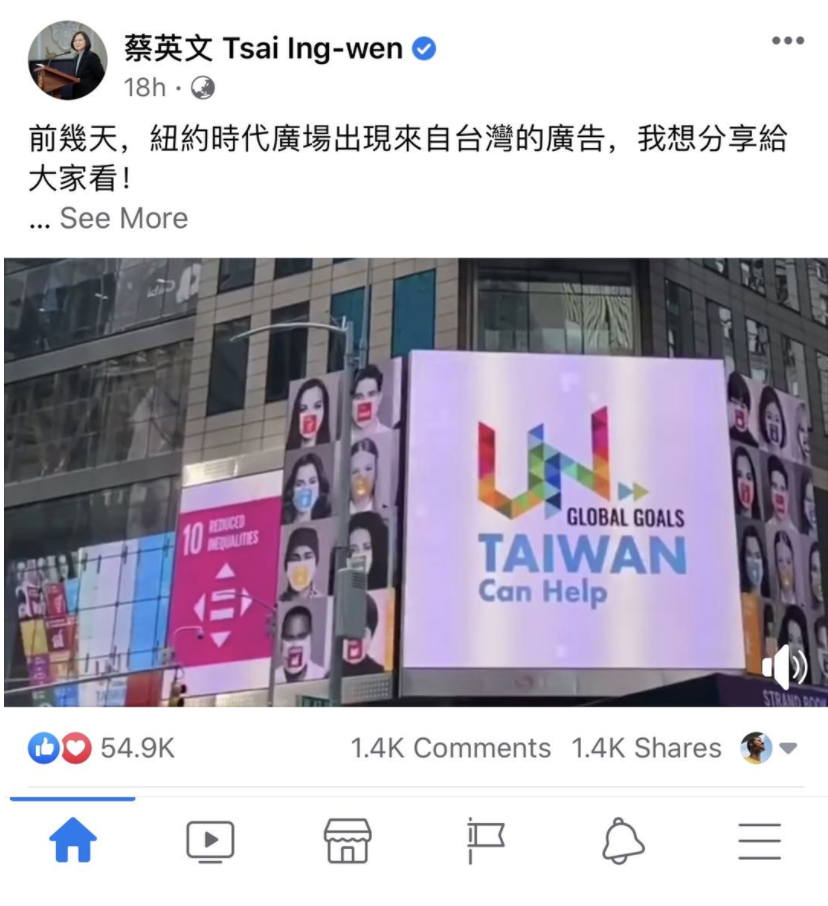
Taiwan Can Not Only Help
That is a smart move and clever PR, but I argue Taiwan should not solely position itself as the country that can help.
Taiwan needs global recognition, and the world needs more collaboration to tackle its challenges, there is no question about it. However, building the world’s recognition solely on it might be not enough and realistically it can not be maintained and scaled as a government initiative only.
Gogoro for example has the potential to build a brand that could represent Taiwan on the global stage while tackling some of the world’s most urgent challenges since it can provide much needed clean urban mobility products and smart city energy solutions in a post-Covid world.
Taiwan’s business ecosystem at large has a golden opportunity to create wealth and recognition for Taiwan.
For the consumer electronics industry Stan Shih, founder of Acer, recognized the need for developing a brand with his “Smiling Curve ” theory in 1992.
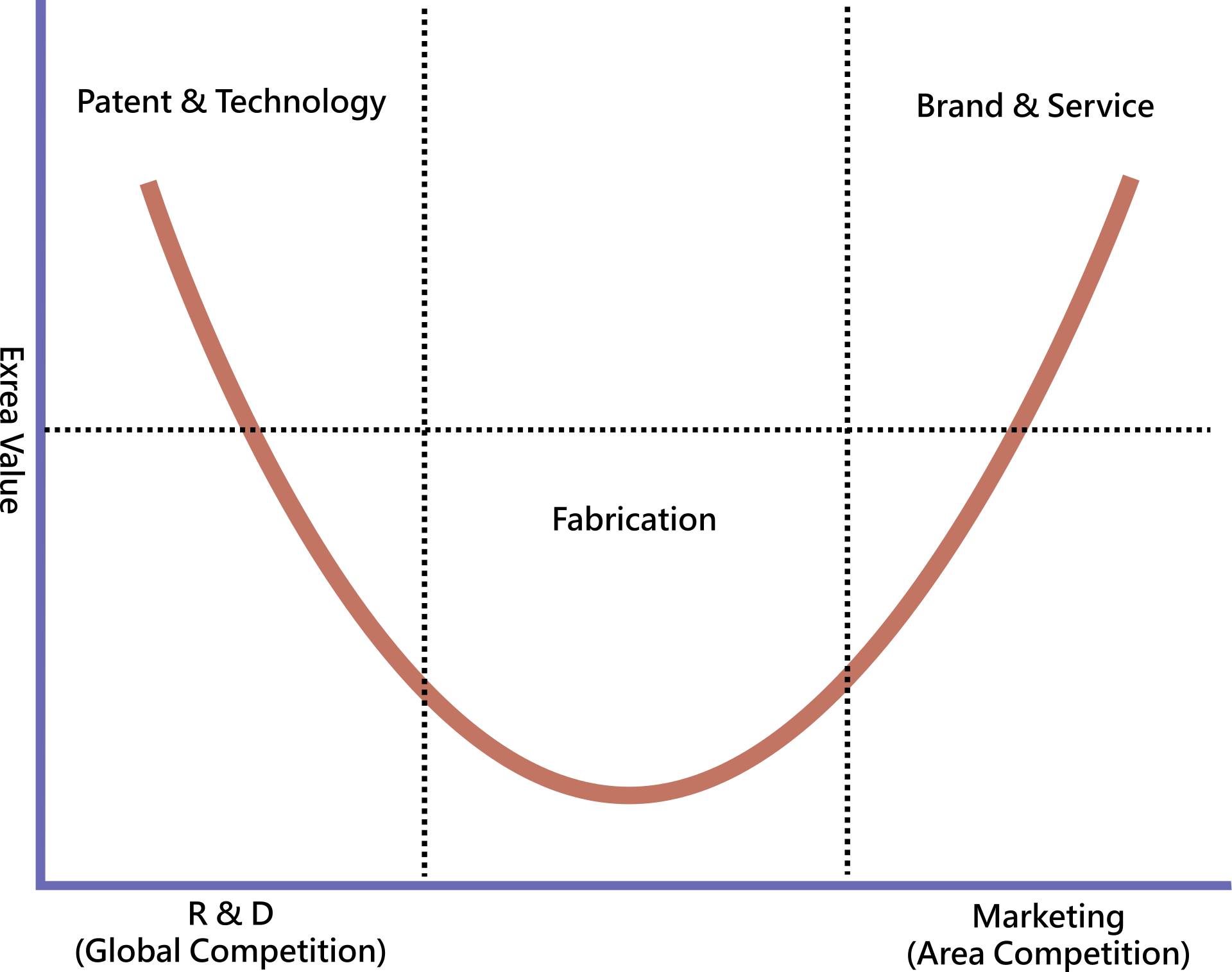
(Source: Wikipedia)
From his perspective, value and differentiation are created both through strong technology as well as marketing and branding.
Besides the Taiwanese multinationals mentioned above, brand development seems to be an afterthought because the company operates in the background as a manufacturer or is covering the local market only.
Wealth Kept in the Family is Not Enough.
Furthermore, at least for the first generation of Taiwan’s founders, their business is a vehicle to create wealth for themselves and their families. Of course, value and wealth creation is a core motivator to start a business and it's a very legit one but when looking into western companies, wealth distribution and shared upside is a common feature that is often missing here.
According to the New York times, Microsoft for example, had created 10,000 millionaires among its employees by 2000. A number that has likely increased quite a bit until given the tremendous rise of the company's market value. There are many other examples of that kind from western tech juggernauts with both Google and Facebook, creating around 1000 new millionaires among their employees through their respective stock option incentives when they went IPO.
This is relevant because many of those early employees utilized their money to invest in startups or start their own companies creating a reinforcing cycle of innovation. The most well-known one of those alumni startup groups is the Paypal Mafia that has invested in or co-founded companies like Facebook, YouTube, Tesla, SpaceX, LinkedIn, and many more.
These companies are now global tech brands people associate with “Innovation made in the USA.”
This model is not exclusive to the US and has been successfully applied around the globe. The co-founder of Germany’s enterprise software giant SAP Hasso Plattner for example, invested in 95 startups through his venture firm and just recently, Spotify’s CEO Daniel Ek pledged to invest 1.2 billion out of his wealth into European startups.
There are many great ideas now born in Taiwan. Some of the startups here could become synonymous with “Innovation made in Taiwan” and digital stables for global users if the founder aspires to and build the right structures.
With all the eyes on Taiwan, now is the best time to build the next generation of Taiwan’s household brands. But to get there, we need a more open, flat and overall welcoming international business culture that can attract and retain the best talent and more capital.
While I’m optimistic that this will happen in the future, the question is will it happen fast enough. There was never a better and more critical time than now to build Taiwan’s global image.

About the author:
Nicky Szmala is a Tech Marketer and Startup Advisor based in Taiwan. When he is not working, he loves to cook, do yoga, and spend time with his family. Nicky holds an MBA from the University of Manchester.
Have you read?
♦ Taipei Professional Orchestra: Big Band Jazz Made Possible by COVID-19
♦ Why Taiwan's superb handling of COVID-19 could be a risk long-term
♦ What post-COVID-19 Business Opportunities does Taiwan offer? A Dutch Perspective
Uploaded by Penny Chiang






